Threaded rings
Threaded rings are fundamental tools in metrology and are used for checking and controlling external threads. These rings ensure that the threads of mechanical components comply with specified dimensional tolerances, thus ensuring the correct fit and efficient operation of mechanical systems.
Characteristics of threaded rings
- Accuracy: Threaded rings are manufactured to very tight tolerances, which allows for extremely accurate thread measurements. This precision is essential to ensure the interchangeability of threaded components.
- Material: Usually, threaded rings are made of hardened steel or stainless steel, materials that offer high resistance to wear and corrosion, prolonging the life of the instrument.
- Standards: Threaded rings conform to international standards such as ISO, ANSI and DIN, thus ensuring compatibility with globally standardised threads.
Advantages of threaded rings:
- Reliability: They provide reliable measurements, reducing the risk of installation errors and increasing operational safety.
- Efficiency: They allow quick and easy inspection of threads, improving the efficiency of the quality control process.
- Versatility: Can be used in various industries, such as automotive, aerospace, machinery manufacturing and many others.
In the field of metrology, threaded rings are used to check thread conformity during production and quality control processes. For example, in the production of automotive components, threaded rings ensure that screws and bolts fit perfectly, preventing assembly problems and guaranteeing vehicle safety.
Threaded rings are indispensable tools for those working in metrology and quality control. Their precision, reliability and compliance with international standards make them an excellent choice for ensuring that threads in mechanical components meet specified requirements.
-
Promo
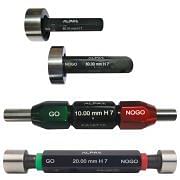
-
Promo
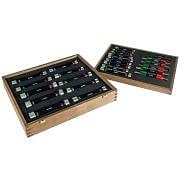
D5516
Limit plug gauge set GO/NG ALPA FA188from €837.00 to €880.00
Special Price -24%
from €632.00 to €664.00 -
Promo
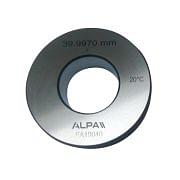
D5517
Setting rings for bore gauges and micrometers ALPAfrom €60.00 to €1,011.00
Special Price -25%
from €45.00 to €752.00 -
Promo
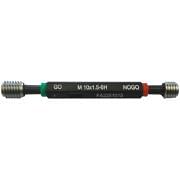
D5520
Coarse pitch threaded gauges ALPAfrom €43.00 to €135.00
Special Price -26%
from €32.00 to €100.00 -
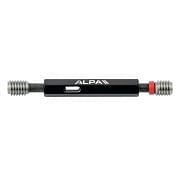
-
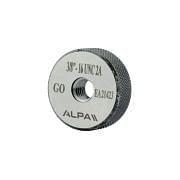
-
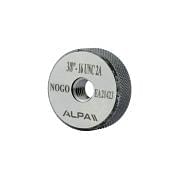
-
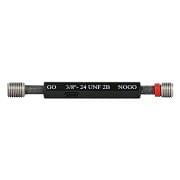
-
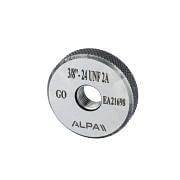
-
Promo
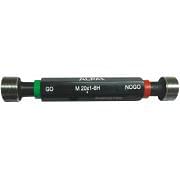
D5530
Fine pitch threaded gauges ALPAfrom €49.00 to €143.00
Special Price -24%
from €37.00 to €108.00

